Monkeys as pets? Meet folks who own them and learn what that's like
Published in Lifestyles
MYRTLE BEACH, S.C. – Reports of a monkey loose in North Myrtle Beach last month drew attention on social media and speculation from residents. Police even went looking for the animal twice but were unable to locate a monkey.
Although the prospect of monkeys in the Myrtle Beach area may seem odd, there are private monkey owners in and around the Grand Strand.
“It’s like having a two-year-old for the rest of your life–with Air Jordans,” said Donna Greenough Cantalupo, who owns two monkeys in Longs.
For some monkey owners, like Trina Owens, the appeal of a primate is its human likeness. After moving down to Longs from Boston, Owens missed her 10 children and 13 grandchildren.
“I didn’t have anyone to really take care of anymore, so I was looking for something that was compatible to companionship … when you look online and you’re watching the videos online of people caring for their monkeys, they’re becoming part of their families, and they’re basically the closest thing to a human to take care of,” Owens said.
Although she and her husband had dogs, Cantalupo started researching monkey ownership for a similar reason.
“My boys were getting grown, and I love being a mother,” said Cantalupo, “and I guess I was getting baby fever, and I’m too old to have children.”
And, in some ways, private monkey ownership does mirror childcare.
“It was much like taking care of a human baby,” said a former Myrtle Beach monkey owner who asked to be identified only as Brie. “They wear diapers and they eat people food. They can eat monkey food, but most monkeys just throw that type of food at you and they’re like, ‘Yeah, no.’”
All three owners have, or in Brie’s case had, large cages where the monkeys could be off a leash and unsupervised. However, outside these cages, the monkeys wear diapers to avoid feces around the house. To accomplish this, Cantalupo cuts tail holes in diapers for human babies.
While you can’t adopt a monkey from your local shelter, it isn’t hard to find monkeys in the age of the internet. Private owners typically get them one of two ways, a breeder or another owner getting rid of a monkey.
Cantalupo got her first monkey, a 4-week-old marmoset named Sisco, from a South Carolina breeder four years ago. In January of this year, Cantalupo got her second monkey, a 3-week-old vervet monkey called Brenna, from a breeder in Texas.
For those going to a licensed breeder, cost can be a prohibitively high barrier to entry. Cantalupo paid $15,000 for Brenna and $3,500 for Sisco. In the four years since purchasing the marmoset, Cantalupo estimates prices have risen to roughly $8,000.
Brie paid about $10,000 to a breeder in Florida for her first squirrel monkey. After that monkey passed away in an accident while she was out of town, Brie got a second squirrel monkey in a “rescue situation” from a private owner in another state. That second monkey eventually also passed away after getting sick.
“He caught a cold just like any human,” Brie said. “That’s how monkeys get sick. It’s the same type of diseases, the same type of sicknesses that any human would have.”
Veterinary care for an exotic animal is a complicated facet of monkey ownership. In the Grand Strand, medical care for a monkey can be both pricey and difficult to find.
The owners who spoke with The Sun News have visited cities hours away for veterinary visits that run about $1,000 before any necessary vaccines or surgeries. Cantalupo says it’s hard to find professionals knowledgeable about monkeys and has taken Sisco and Brenna as far as Charleston and Durham for appointments.
“That’s the problem when you see an exotic vet, they know a lot of things about parrots and all the other exotics, but they’re not real familiar with monkeys,” said Cantalupo.
When Owens got her first monkey, Charlotte, from another owner, the spider monkey was sick and passed pneumonia to Owens. Although she got medicine, Owens wasn’t able to get Charlotte a veterinary appointment for weeks.
“Realizing that she was pretty much very sick and getting sicker by the day … what I decided to do was take my medication that I was getting for me and start giving it to her and tell my doctor that my medicine wasn’t working for me,” Owens said.
She adopted Pixie, another spider monkey from the same home as Charlotte that was also sick with pneumonia soon after. Both monkeys survived and regained they’re health but, according to Owens, the veterinarian told her Charlotte would have died before she could get in for an appointment without Owens’ medication.
Feeding a monkey is a much simpler task. In addition to fresh fruits and vegetables, some owners give monkeys special monkey food and vitamins. These supplements can be costly, but are easily accessible through online stores.
“I basically buy them on Amazon, and they come in different flavors. Monkey biscuits basically carry all the basic vitamins that they need on a daily basis along with the monkey food that they have,” Owens said.
Living in captivity, however, some monkeys get a taste for food they couldn’t find in the wild. Sisco, Cantalupo’s marmoset, has a particular taste for Italian wedding soup.
“Believe or not, he’s supposed to eat vegetables, but he loves Italian food,” Cantalupo said. “My husband’s Italian, so he started him on Italian food when he started eating food and now he eats Italian food. And if you give him anything else besides Italian food, he will throw his bowl to the other side of his cage.”
All three monkey owners agreed a private owner could have had a monkey get loose. In South Carolina, it’s legal to privately own primates that aren’t great apes, like chimpanzees, gorillas and orangutans — and even those are allowed if the owner acquired the ape before 2018.
Still, if there was a monkey running loose, it could have been abandoned by an owner.
“I’m very confused about that … the only thing I can possibly think of is that monkey was giving them a hard time,” Owens said.
It’s also possible an owner with a lost monkey might not have come forward seeking help from law enforcement from the public because they feared facing backlash or losing custody of pets.
“I have friends in Charleston that have exotic animals and they were bringing people into their home to visit their animals and they actually got every single pet that they own taken away,” Brie said.
Regardless of whether accounts of an escaped monkey in North Myrtle Beach are true, it’s possible. Most pet owners in the Grand Strand have cats and dogs, but some call monkeys a part of the family.
“There’s hundreds of us,” Owens said. “They’re everywhere.”
©2024 The State. Visit at thestate.com. Distributed by Tribune Content Agency, LLC.
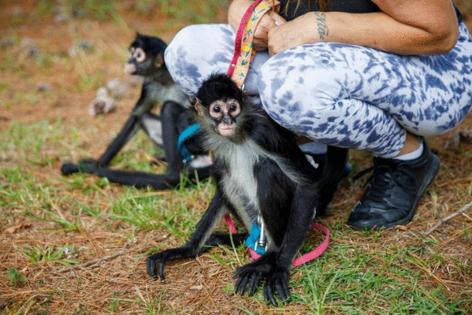
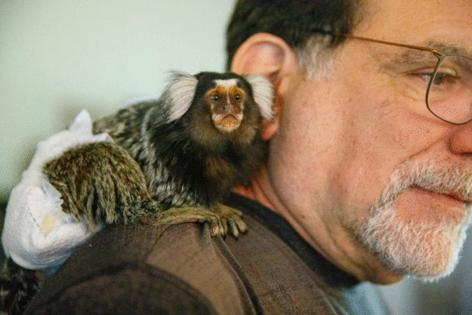
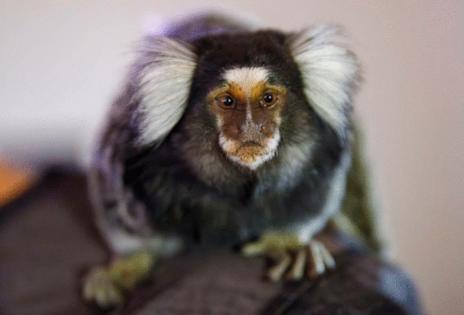
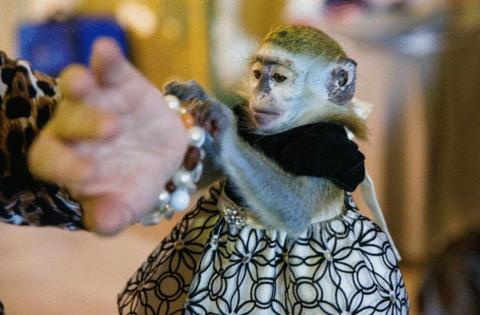
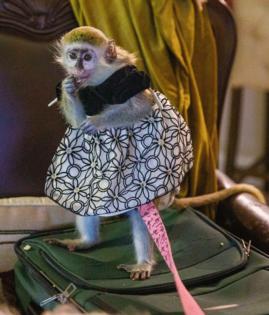




























Comments